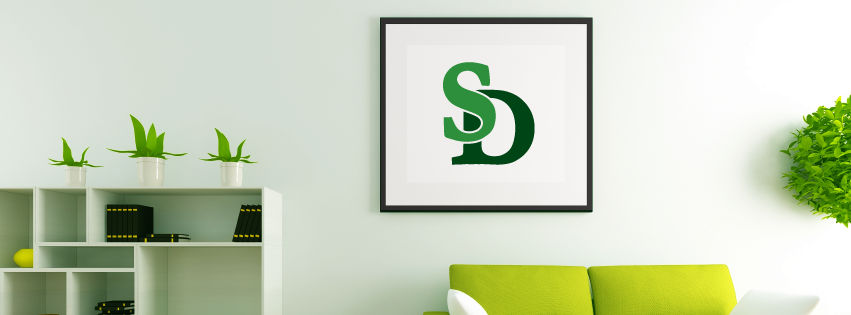Buyers and sellers will hear a lot about conveyancing or the
“conveyancing process”, but many may be unclear on what exactly this means.
Below, using our experience as the leading
independent estate agent in the borough of Redbridge, we aim to
outline what exactly the process entails.
Conveyancing, to put it simply, is the legal transfer of
home ownership from the seller to the buyer.
The process starts when a buyer submits an offer and comes
to a halt when the seller officially hands over the keys.
To begin with, your estate agent will negotiate with the
buyer to obtain an appropriate, realistic offer.
When this offer has been accepted by you, the seller,
everything gets going.
It is then your job to employ the services of a solicitor or
conveyancer to conduct the conveyancing process on your behalf.
Choosing the right
solicitor/conveyancer
To avoid any needless delays, it's a good idea to pick your
solicitor or conveyancer at the same time you pick your estate agent.
A bit of advance planning and research will help to get the
ball rolling without any hiccups.
In many cases, an agent will have links with a solicitor’s
firm or a conveyancing company that they can recommend to you.
Question time
Once you’ve made your decision and the conveyancing process
is ready to begin, you will be required to complete a range of comprehensive
questionnaires about your property, including the TA 6, the TA 10 and the TA
13.
This will also show what you plan to include with the sale
(for example, fixtures and fittings, furniture, appliances, etc).
Taking this information, your conveyancer will then draw up
a draft contract, which will in turn be sent to the buyer for approval.
There will need to be agreement between you and your buyer
about things like the date of completion (this is usually 1-4 weeks after the
exchange of contracts).
Also, if a buyer’s survey flags up anything untoward – e.g.
significant damp or roof problems – then there may need to be negotiations
between you and your buyer over who will mend this.
If this isn’t agreed upon, there may even have to be
renegotiations on the sale price.
You must also put plans in place to pay off your mortgage.
In order to do this you need to request a redemption figure from your mortgage
lender. This is how much you will pay upon completion of the sale.
Exchanging contracts
You and your buyer will already have arranged a time and date
to exchange. When this comes around, solicitors/conveyancers from both sides
will then exchange the contracts on your behalf.
Exchanging contracts is something that should be treated
with the utmost seriousness – once you’re in, you’re in.
Once you’ve exchanged, you have entered a legally binding
contract to sell your property.
If you withdraw post-exchange, your buyer can sue. On the
other hand, exchanging contracts offers sellers protection, too.
If the buyer suddenly pulls out and doesn’t see the sale
through to completion, you will still probably be able to keep their deposit.
It’s also important to mention that, once contracts have
been exchanged, you will be unable to accept any offers from other interested
parties.
The waiting game
Unfortunately, completion doesn’t happen overnight and there
is often a gap between when you exchange on the contract and when the home is
no longer yours.
This gap could be one week, a month or – in some cases –
even longer. Delays and complications,
for a variety of reasons, can occur.
Remember, you still own the home until completion. In other
words, the home still legally belongs to you and you are under no obligation to
move out right after the contracts have been exchanged.
Nevertheless, it’s probably wise to start preparing with plenty of time to spare. As
anyone who has moved home will tell you, packing in a hurry is a recipe for
disaster.
You should receive the buyer’s deposit immediately after
exchange. It’s normally between 5-15% of the agreed sale price, but it can be
much higher.
So, assuming you have sold a home for £300,000, you would
receive a deposit of £30,000 once contracts have been exchanged.
Handing over the keys
The conveyancing process ends, as we said before, when you
hand over the keys to your buyers (in reality, you’re more likely to be handing
them to your estate agent who will then hand them to the buyer on your behalf).
Upon completion you will get the outstanding balance of your
sale price and your conveyancer will hand over legal documents to the buyer, in
doing so confirming ownership.
Any outstanding mortgage on the property will then be paid
off from the profits of the sale.
After all this, it is then time to pay your estate agent and
conveyancer for the work they have done to bring the sale to completion.
As you can see, conveyancing can be quite a confusing and
complicated business. That’s why choosing the right estate agent – one who
knows the inner workings of the property market inside out – can help to guide
you through everything in a calm and unflustered manner.
At Sandra Davidson, we provide exactly that. Our
experienced and knowledgeable estate agents will work closely with you, and
your conveyancer, to ensure you get the best possible price for your home.
To find out more please contact us on: 0208 551 0211. For a
free online instant valuation of your property, click
here.


